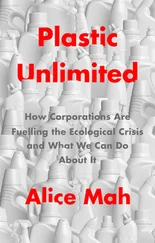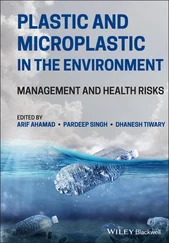Above them, a vulcanized-rubber wide-mouth bass mounted on the wall begins to move its tail and sing, in a deep, Barry White-type voice: “Take me to the river, / Drop me in the water…”
Syd’s cellphone jangles in his breast pocket, the Chariots of Fire ring tone more cloying than triumphant.
“What do you mean he’s disappeared?” Syd hears himself squawking, his shirt front damp with another man’s tears. He hates the squawk. But there’s nothing to be done for it- it makes guest appearances when he’s over-agitated, like acid reflux. “There’s no transport off the island till Sunday. He can’t just disappear.”
The rubber fish, oblivious to the drama on either end of the phone, continues to sing. Something about oceans. Something about love.
“Mr. Kakami? Mr. Kakami!” The first AD, a wraithlike woman from South Africa who always used the honorific and looked like a Brontë scholar, floated into Patrick’s field of vision. They were four scenes behind and it wasn’t even noon. Patrick summoned his trademark look of benign concern and huddled over her rain-pocked copy of the shooting script, randomly scratching out shots that, a few weeks ago, he would’ve sacrificed his right testicle to keep. She was clearly relieved, yet continued to look at him as if he were a man who kept his first wife in the attic. What he was, in fact, was a man struggling to remember why he was here in this island rainforest, surrounded by all this slurry of activity, in the first place.
Because . Because the low hum of his parents’ voices, whenever he had drifted off to sleep in the back seat of the car on the way home from the movie theatre, was the greatest soundtrack ever made. Because, once upon a time, Jessica Lange’s face had been the closest thing to looking straight into the sun and not going blind. Because his mother had always cheered at the end of that scene in The Sound of Music where the nuns stole the distributor cap from the Nazis’ car. Because, at eight, he’d developed a heart condition (sluggish flow through left ventricle) and his mother, afraid he’d die in his sleep, let him stay awake many nights in the long weeks leading up to the operation (experimental at the time, routine today), his head in her lap as the blue light of late-night movies on the oldies channel flickered over them (how his mother had adored Ernest Borgnine in Marty and Sidney Poitier in Lilies of the Field -again, those nuns!) but don’t tell your father , her unexpectedly cool finger to his lips.
Because his own childhood had once seemed endless- something he’s thought about a great deal ever since overhearing that story on the ferry, perhaps apocryphal, about the nameless toddler who’d speed-dialed 911 on his father’s cellphone, obliviously, and even gleefully, ending his childhood as he knew it.
Because he had once been a child who was unconditionally loved and cherished, Patrick Kakami had been in a hurry to grow up and make what amounted to the world’s most perfect movie-the cinematic equivalent of a mother’s breath in a son’s ear at three-thirty in the morning.
A moving picture so sublime the intended viewer’s heart would fold in on itself in an origami of joy.
And now? Now Patrick was going through the motions - wind up the little art-house director and watch him make a film! How had he ended up making films and not movies, when it was good old-fashioned flicks, middlebrow and sentimental, excluding only those who didn’t believe in magic, that he so loved? When had he turned from snub-nosed, red-headed Paddy K. into “artfully stubble-headed auteur Patrick Kakami”? (“Thirty Canadians Under Thirty to Watch!” Maclean’s , January 9, 2006 - he’d snuck in under the wire.) And his biggest challenge now was not to let on that he was just going through the motions but to proceed as if it all still did matter.
Look at those kids . The various PAs and gang grips milled around the craft service table-sodden, chilled, full of themselves and non-medicated bison jerky, mentally jerking off to dreams of making a film-fest splash at Sundance, Slamdance, or even Slamdunk, or hanging around the Croissette, aging French movie actresses clutching them briefly to their Dior-scented cheeks while Atom Egoyan raised two fingers in salute and the buzz on the trade-show floor grew deafening. That was why they wanted to make movies-or rather, films-not for the pleasure of the audience or because they had known love.
“P.K.!” The Steadicam guy and the stunt double, a disconcertingly pale, double-jointed woman who went by the name The Body, were playing hackeysack with a vigour born of pent-up energy (sexual? drug-induced? feigned? Can such a thing be feigned?) that Patrick himself hadn’t felt for weeks, even months. They gestured to him. Stoked . Always stoked. He put his hands to the small of his back, exaggeratedly wincing, indicating no-can-do, and tapped his watch face with what he hoped was a purposeful look.
Patrick Kakami, who had just turned thirty-three two months ago, the same age as Jesus Christ was when he died (and Alexander the Great and John Belushi, men of untethered ambition all- stoked? ), felt old, much older than he had any right to. It was as if his recently replaced mitral valve had kick-started an accelerated aging process; this ticker he called his “pig heart” triggering a sped-up degeneration of living tissue. Cell death racing along like actors in a Mack Sennett picture. It was 2009. And time itself was melting, oozing over the edge of his days like Dali’s clocks.
Patrick made a deal with himself, right there, right then, feet planted in mud, rain misting his rimless glasses, his compromised heart in his mouth, as small and sour as a dried apricot, to reclaim some essential part of himself before it was too late, before the bastards (they, them ) did him in.
After all, Syd Gross, whom he trusted, who was his friend, had allowed those eunuchs at CBC, their “broadcast partner,” to talk him into cutting the scene in Rain Dog that meant the most to Patrick-the scene he now thinks of in eulogy as the Rosetta Stone of the entire picture. He couldn’t even bear to think about the concessions necessitated by the Chinese co-production deal.
All around him, little dramas, micro-movies, were being played out. Gideon-spouting actor David Mathers was engaged in a flirty game of cat’s cradle with the thirteen-year-old Victoria girl who played the novitiate, Sister Incarnata. Mathers with his high beams on, the girl’s fingers hopelessly tangled, her laughter like a cat choking on cream. Gita Chapelle, rogue actress, was napping high up in Old Gnarly, one dirty bare foot dangling off her protest platform. The Body pumped her legs like pistons, tossing the footbag from one knee to the other as the nun extras gathered around her counting out loud, urging her on with her pointless task.
The light filtering through the canopy of old-growth cedars and Douglas firs made everything look as if it were being shot in stop-motion. As if all these people were puppets or Claymation figures, their movements exaggerated, grotesque.
Patrick’s skin tightened against his skull.
And the first AD still standing there, rattling the script in his face as if he hadn’t already answered her question.
Months back, before all the real problems with the production began-before the second female lead took to an enormous Douglas fir, nicknamed Old Gnarly, with a megaphone and an endless supply of energy bars and Red Bull to protest against globalization (as far as Syd knew, she was still up there, may she choke on her armpit hairs), before he had to negotiate the crazy deal points for the director of photography, a high-school pal of Kakami’s whose head had swelled to the size of the Stay Puft Marshmallow Man in Ghostbusters after working on Lethal Weapon 4 as the clapper loader (just recalling the initial deal letter made Syd clutch at a phantom pain somewhere in the vicinity of his heart), before Syd found out that Kakami had gone AWOL (as in vanished without a trace , poof! as if the man had never existed-described this way to Syd by the hysterical location manager as though Kakami had performed a magic trick)-before all this, before they could secure the permit to shoot on the rainforest island, on native land, Syd Gross had had to attend a sweat lodge ceremony.
Читать дальше












